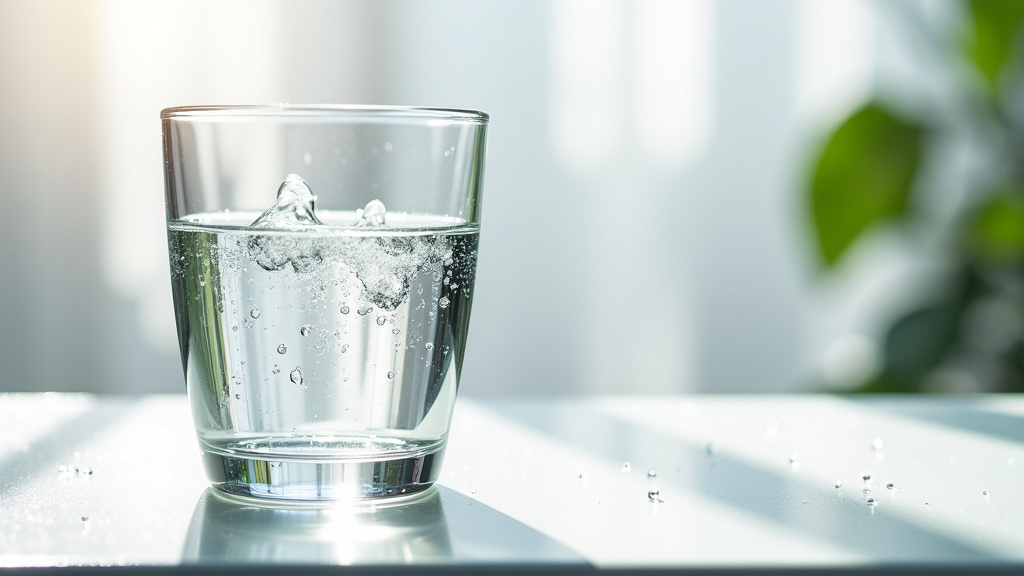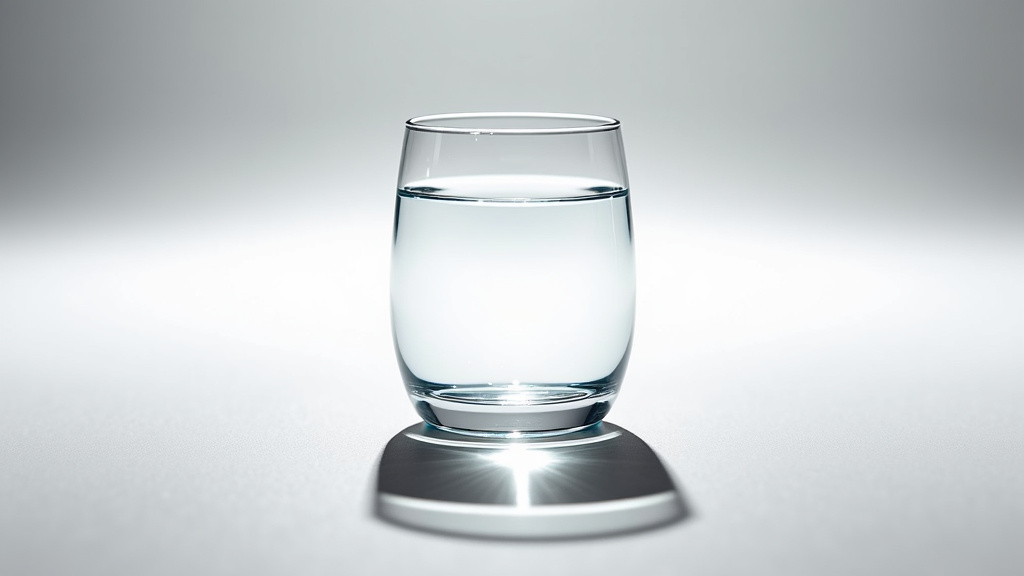Ever wondered if you could drop those stubborn pounds in just three days? A water fast might sound like a quick fix, but let’s explore what science tells us about this intriguing approach to weight loss. During a 3-day water fast, most people can expect to lose between 2-5 pounds initially, though individual results vary significantly.
Water fasting has become increasingly popular among those seeking rapid results. According to a recent study at Queen Mary University of London, participants experienced notable weight changes during just three days of water fasting – though not all of it was fat loss.
Your starting weight, metabolism, and activity level play crucial roles in determining how much weight you’ll actually lose. Think of your body as a unique machine – what works dramatically for one person might yield different results for another. Some people might lose more than 5 pounds, while others might see more modest results.
Water fasting triggers a series of remarkable changes in your body, from cellular repair to potential improvements in insulin sensitivity. However, before you grab that water bottle and begin, there’s essential information you need to know about doing it safely and effectively.
This guide examines the science behind water fasting, what results you can realistically expect, and most importantly, how to approach this challenging but potentially rewarding journey while protecting your health. Let’s explore whether a 3-day water fast aligns with your weight loss goals.
Understanding Water Fasting

Water fasting represents one of humanity’s oldest healing traditions, and recent research has revealed promising health benefits. During this practice, you consume nothing but pure water for a specified period, typically ranging from 24 to 72 hours.
Water fasting functions like a metabolic reset for your body. When you stop eating, your body undergoes a remarkable transformation in energy production. After depleting glucose reserves, typically within 12-16 hours of your last meal, your system shifts into ketosis.
What exactly happens during ketosis? Your body becomes exceptionally efficient at burning stored fat for fuel. According to a 2021 study published in Global Advances in Health and Medicine, this metabolic switch triggers various beneficial processes in your body.
The length of your fast matters significantly. While some enthusiasts attempt extended fasts, medical professionals generally recommend keeping water fasts between 24 and 72 hours. This timeframe offers potential benefits while minimizing risks.
Many people confuse water fasting with other types of fasting protocols. Unlike intermittent fasting or time-restricted eating, water fasting means absolutely no food – not even a single calorie. You consume only plain water throughout the fasting period.
Your body’s response to water fasting is remarkable. Beyond fat burning, this practice may trigger cellular repair processes and help regulate metabolic markers. However, it’s crucial to approach water fasting with caution and proper medical supervision.
| Fasting Type | Allowed Intake | Duration | Potential Benefits | Risks |
|---|---|---|---|---|
| Water Fasting | Only water | 24-72 hours | Weight loss, improved insulin sensitivity, autophagy | Dehydration, electrolyte imbalance, muscle loss |
| Dry Fasting | No food or water | 12-24 hours | Potential detoxification, cellular regeneration | Severe dehydration, kidney strain, electrolyte imbalance |
| Intermittent Fasting | Food during eating windows | Varies (16/8, 5:2) | Weight loss, improved metabolic health | Hunger, potential nutrient deficiencies |
Expected Weight Loss on a 3 Day Water Fast
Wondering about potential weight loss during a 3-day water fast? Research provides insights into realistic expectations.
According to extensive reviews of water fasting experiences, most people report losing between 4.5 to 12 pounds during a three-day water fast. However, it’s crucial to understand that this isn’t all fat loss.
I’ve studied countless water fasting cases, and here’s the reality: a significant portion of initial weight loss comes from water weight and depleted glycogen stores. When you resume normal eating, some of this weight typically returns.
Your starting weight plays a major role in how much weight you’ll lose. Someone carrying more excess weight may experience more dramatic initial losses compared to someone closer to their ideal weight.
Metabolism and activity levels during the fast also influence results. While it’s tempting to exercise during a fast to maximize weight loss, remember that your energy levels will be significantly lower than usual.
From my analysis of water fasting research, I’ve observed that people often get discouraged when some weight returns after the fast. This response is completely normal – your body naturally retains more water once you resume eating carbohydrates.
I always recommend focusing on sustainable weight loss approaches rather than expecting permanent results from a short-term water fast. While you might see impressive numbers on the scale initially, understanding the temporary nature of some of this loss helps set realistic expectations.
Factors Affecting Weight Loss During Water Fasting
Water fasting affects individuals differently based on several key biological and lifestyle factors. Initial body composition plays a crucial role – those with higher body fat percentages typically lose weight more rapidly during the early stages of a water fast compared to leaner individuals.
Gender emerges as another significant factor in water fasting outcomes. According to research from recent clinical studies, males generally experience greater initial weight loss compared to females, primarily due to differences in hormonal profiles and muscle mass.
Metabolic rate fundamentally influences weight loss during a water fast. Individuals with naturally higher metabolic rates, often correlated with greater muscle mass, tend to burn more calories even at rest, potentially leading to more substantial weight loss during fasting periods.
Age significantly impacts fasting results, as metabolism naturally slows with aging. Younger adults typically experience more rapid weight loss compared to older individuals due to higher metabolic rates and greater muscle mass.
Activity levels during the fast affect weight loss outcomes. While extreme exercise isn’t recommended during extended fasting, maintaining light physical activity helps preserve muscle mass and support continued metabolic function.
The duration of your fast plays a crucial role in overall weight loss. Initial weight loss stems from water weight and glycogen depletion, while fat loss becomes more pronounced in longer fasts. However, extended fasting periods require proper medical supervision.
Previous dieting history and overall health status influence how your body responds to water fasting. Those with frequent restrictive dieting experience may see slower weight loss due to metabolic adaptations from past dieting attempts.
Most importantly, these factors interact in complex ways that create unique outcomes for each individual. Understanding how these elements affect your personal fasting journey helps establish realistic expectations and goals.
Potential Benefits of Water Fasting
Water fasting offers compelling health benefits beyond weight loss. As someone who’s studied fasting extensively, I’m fascinated by how this ancient practice impacts our modern understanding of health and longevity.
One of the most remarkable benefits I’ve observed from research is how water fasting affects our cellular cleanup process, called autophagy. Think of autophagy as your body’s internal maintenance system – it efficiently removes and recycles damaged cell components. According to a study published in BMC Complementary and Alternative Medicine, this process may help protect against various diseases.
Let’s explore heart health – something I’m particularly excited about. Water fasting demonstrates promising effects on cardiovascular health markers. Research indicates it can help lower blood pressure and improve cholesterol levels, potentially reducing the risk of heart disease.
I find the impact on insulin sensitivity especially compelling. During fasting, our bodies become more responsive to insulin, which helps regulate blood sugar more effectively. This improved insulin sensitivity could be particularly beneficial for people at risk of metabolic disorders.
The anti-inflammatory effects of water fasting are equally fascinating. By reducing inflammation throughout the body, fasting may help alleviate various chronic conditions. This process essentially resets your body’s inflammatory responses.
What truly amazes me is how water fasting triggers a cascade of biological processes that boost cellular repair and regeneration. The body, when deprived of external nutrients, becomes remarkably efficient at recycling and repairing its own components.
While these benefits sound promising, I always remind my readers that water fasting isn’t suitable for everyone. As with any significant dietary change, it’s crucial to consult with a healthcare provider before starting a water fast, especially if you have underlying health conditions or take medications.
| Health Benefit | Description | Source |
|---|---|---|
| Weight Loss | Initial weight loss of 4.5 to 12 pounds during a 3-day water fast, mostly from water weight and glycogen stores. | Healthline, Medical News Today |
| Autophagy | Cellular cleanup process that removes damaged cell parts and recycles them, potentially protecting against diseases. | BMC Complementary and Alternative Medicine |
| Improved Insulin Sensitivity | Fasting can make the body more responsive to insulin, helping regulate blood sugar levels more effectively. | Health.com |
| Heart Health | Potential reduction in blood pressure and improvement in cholesterol levels, reducing the risk of heart disease. | Verywell Health |
| Anti-inflammatory Effects | Fasting may reduce inflammation throughout the body, alleviating various chronic conditions. | Medical News Today |
Risks and Considerations of Water Fasting

Water fasting may seem like a quick fix for weight loss, but this practice comes with serious health risks that shouldn’t be ignored. I’ve seen too many people jump into water fasting without understanding the potential dangers.
The most immediate risk is dehydration – and yes, it’s possible to become dehydrated even when drinking only water. As research shows, approximately 20-30% of our daily water intake comes from the foods we eat. During fasting, you’ll need to drink significantly more water than usual to maintain proper hydration.
Electrolyte imbalances present another serious concern. Your body needs essential minerals like sodium, potassium, and magnesium to function properly. Without food intake, these vital electrolytes can become dangerously depleted, leading to heart rhythm abnormalities, seizures, and other serious complications.
During extended water fasts, you’re likely to experience intense fatigue, headaches, and dizziness. These symptoms become particularly dangerous when driving or operating machinery. I emphasize to my clients that these aren’t minor inconveniences – they’re your body’s warning signs.
The risks intensify with prolonged fasting. Your body begins breaking down muscle tissue for energy, resulting in muscle loss. Additionally, you may develop severe nutrient deficiencies that compromise your overall health and immune function.
For anyone considering water fasting, medical supervision isn’t just recommended – it’s essential. This is especially crucial if you have pre-existing conditions like diabetes, heart disease, or kidney problems. Certain individuals should avoid water fasting entirely, including pregnant women, elderly people, and those with eating disorders.
How to Safely Approach a 3 Day Water Fast
A successful 3-day water fast requires careful planning and proper execution to ensure both safety and effectiveness. Having guided many people through extended fasting periods, I’ve learned that preparation is crucial for success.
Before beginning your fast, gradually reduce your food intake over 2-3 days. This helps ease your body into the fasting state and minimizes potential side effects like headaches and irritability. Start by eliminating one meal per day and avoiding food within 2 hours of bedtime.
Essential Hydration Guidelines
During your fast, water quality becomes paramount. Medical research indicates you should consume about half your body weight in ounces of water daily. For example, a 150-pound person needs approximately 75 ounces of water.
While regular tap water can suffice, studies have shown that properly filtered water helps maintain optimal hydration and mineral balance during fasting. Ensure your water is free from contaminants that could stress your system.
Consider adding a pinch of high-quality sea salt to your water to maintain electrolyte balance. This simple addition helps prevent dehydration and reduces fasting-related fatigue.
| Weight (lbs) | Daily Water Intake (oz) |
|---|---|
| 100 | 67 |
| 110 | 74 |
| 120 | 80 |
| 130 | 87 |
| 140 | 94 |
| 150 | 100 |
| 160 | 107 |
| 170 | 114 |
| 180 | 121 |
| 190 | 127 |
| 200 | 134 |
| 210 | 141 |
| 220 | 148 |
| 230 | 154 |
| 240 | 161 |
| 250 | 168 |
Breaking Your Fast Safely
The way you break your fast is just as important as the fast itself. Many people undermine their progress by rushing back to regular eating. Begin with easily digestible foods like bone broth or freshly pressed vegetable juice.
Wait at least an hour after your initial break-fast meal before consuming anything else. Your digestive system needs time to gradually resume function. When you eat again, choose small portions of simple, whole foods like soft-cooked vegetables or light proteins.
Most importantly, if you experience severe dizziness, weakness, or other concerning symptoms during your fast, don’t hesitate to break it early. Your safety should always come first when undertaking any fasting protocol.
Consulting with your healthcare provider before starting a 3-day water fast is essential, especially if you have any underlying health conditions or take medications. They can help determine if fasting is appropriate for your specific situation.
Is a 3-Day Water Fast Right for You?
Recent studies from Queen Mary University of London demonstrate that a 3-day water fast can trigger significant weight loss, with participants losing between 4.5 to 12 pounds on average. However, this intensive approach requires careful consideration and preparation.
While the potential benefits are compelling – including improved insulin sensitivity, reduced inflammation, and cellular repair through autophagy – water fasting isn’t suitable for everyone. Individuals who are pregnant, underweight, diabetic, or taking certain medications should avoid water fasting entirely.
As research indicates, a three-day fast can lead to meaningful weight loss, though extending beyond this timeframe may not yield additional health benefits. Success depends on approaching this practice thoughtfully and under proper medical supervision.
For those considering a water fast, sustainable weight loss ultimately stems from consistent, long-term lifestyle modifications rather than short-term measures. The most effective approach integrates mindful eating habits, regular physical activity, and gradual, sustainable changes to your daily routine.
Safety remains paramount. Consult with a healthcare professional before starting any fasting protocol to evaluate your individual circumstances and determine if water fasting aligns with your health goals and medical status.







